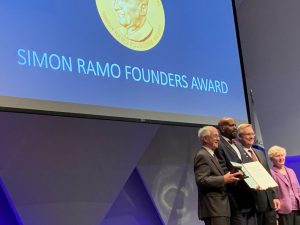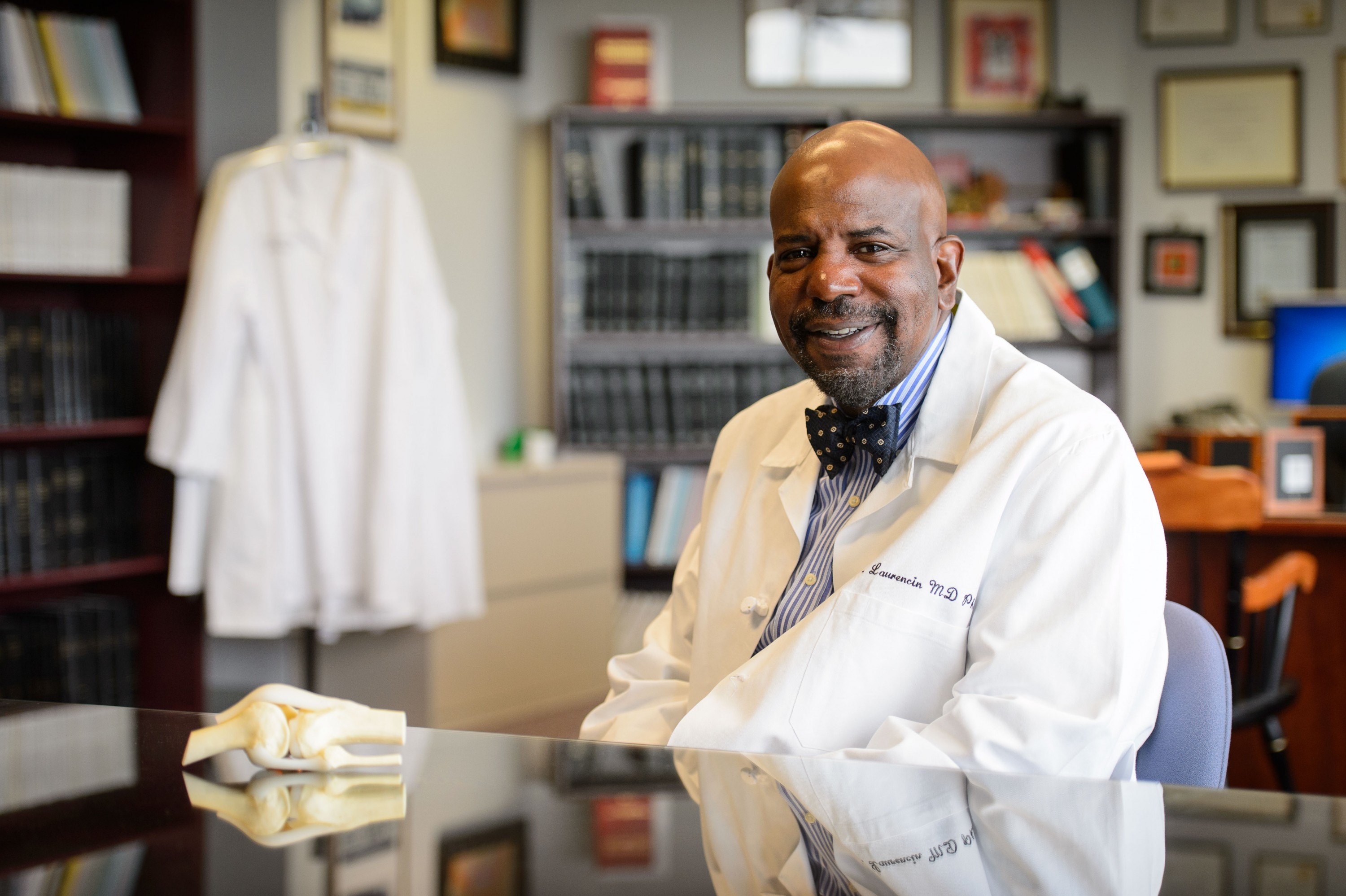The National Academy of Engineering (NAE) on Oct. 6 honored UConn’s Dr. Cato T. Laurencin for his extraordinary impact on the engineering profession. Laurencin received the Simon Ramo Founders Award for his research contributions and leadership in engineering.

Laurencin is known worldwide as a leader in biomaterials, nanotechnology, stem cell science, drug delivery systems, and a field he has pioneered, regenerative engineering. He is being recognized with the Simon Ramo Founders Award “for fundamental, critical, and groundbreaking scientific advances in the engineering of tissues, guiding technology and science policy, and promoting diversity and excellence in science.” The award acknowledges outstanding professional, educational, and personal achievements to the benefit of society and includes a commemorative medal.
At UConn, Laurencin is the University Professor, the eighth to be designated by the school in its over 135 year history. He is professor of chemical and biomolecular engineering, materials science and engineering, and biomedical engineering; the Albert and Wilda Van Dusen Distinguished Endowed Professor of Orthopaedic Surgery; and CEO of the Connecticut Convergence Institute for Translation in Regenerative Engineering.
Laurencin has produced seminal studies in a number of areas of engineering and science. In fact, he and his colleagues were the first to develop nanofiber technologies for tissue regeneration, and his group pioneered the development and understanding of polymer-ceramic systems for bone regeneration. The American Institute of Chemical Engineers cited this achievement when naming him one of the 100 Chemical Engineers of the Modern Era. In 2016, Laurencin was selected for the National Medal of Technology and Innovation, the highest honor bestowed in America for technological achievement, presented by the president of the United States, “for seminal work in the engineering of musculoskeletal tissues, especially for revolutionary achievements in the design of bone matrices and ligament regeneration.”
He has received the National Institutes of Health (NIH) Director’s Pioneer Award and the National Science Foundation (NSF) Emerging Frontiers in Research and Innovation Grant Award for his field of regenerative engineering. He is the recipient of the Philip Hauge Abelson Prize from the American Association for the Advancement of Science “for signal contributions to the advancement of science in the United States.” He has served in leadership positions at NIH, NSF, and the FDA.
Laurencin is an elected member of the NAE, National Academy of Medicine, and the American Academy of Arts and Sciences, and is a fellow of the National Academy of Inventors and the American Association for the Advancement of Science. Internationally, he is an elected fellow of the African Academy of Sciences, National Academy of Sciences of India, Indian National Academy of Engineering, and the World Academy of Sciences, as well as an academician and elected member of the Chinese Academy of Engineering.
Laurencin received his B.S.E in chemical engineering from Princeton University, and his Ph.D. in biochemical engineering/biotechnology from the Massachusetts Institute of Technology while at the same time received his M.D., magna cum laude, from the Harvard Medical School.



